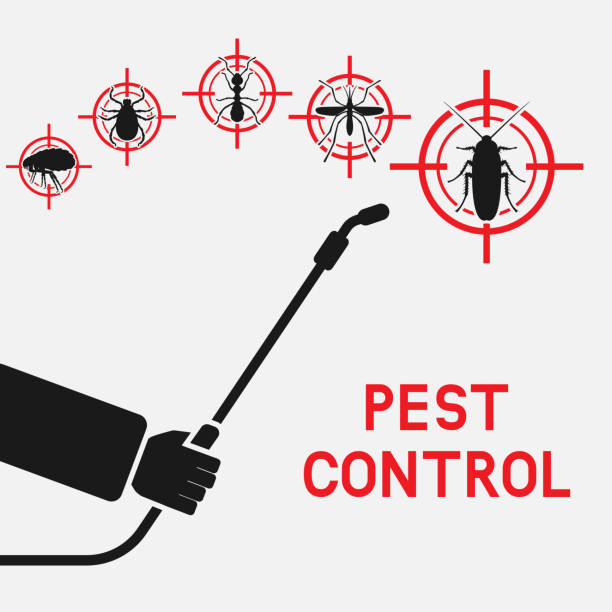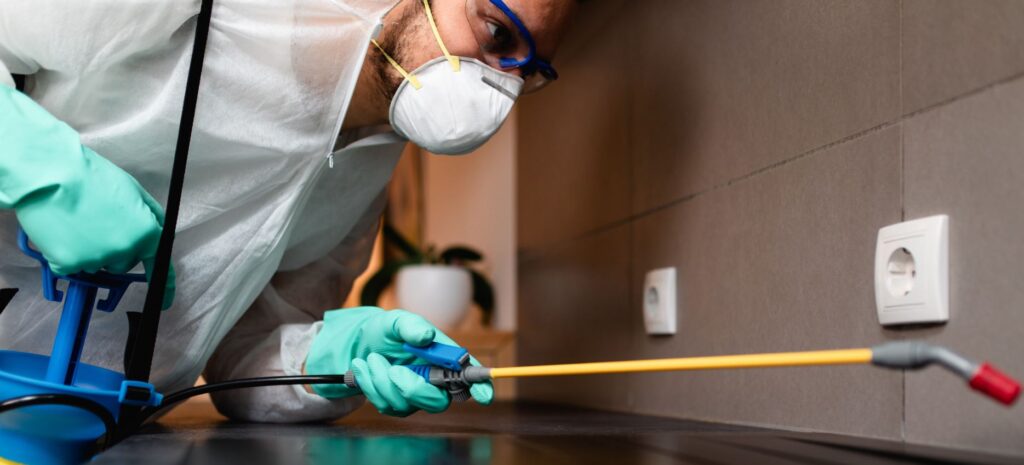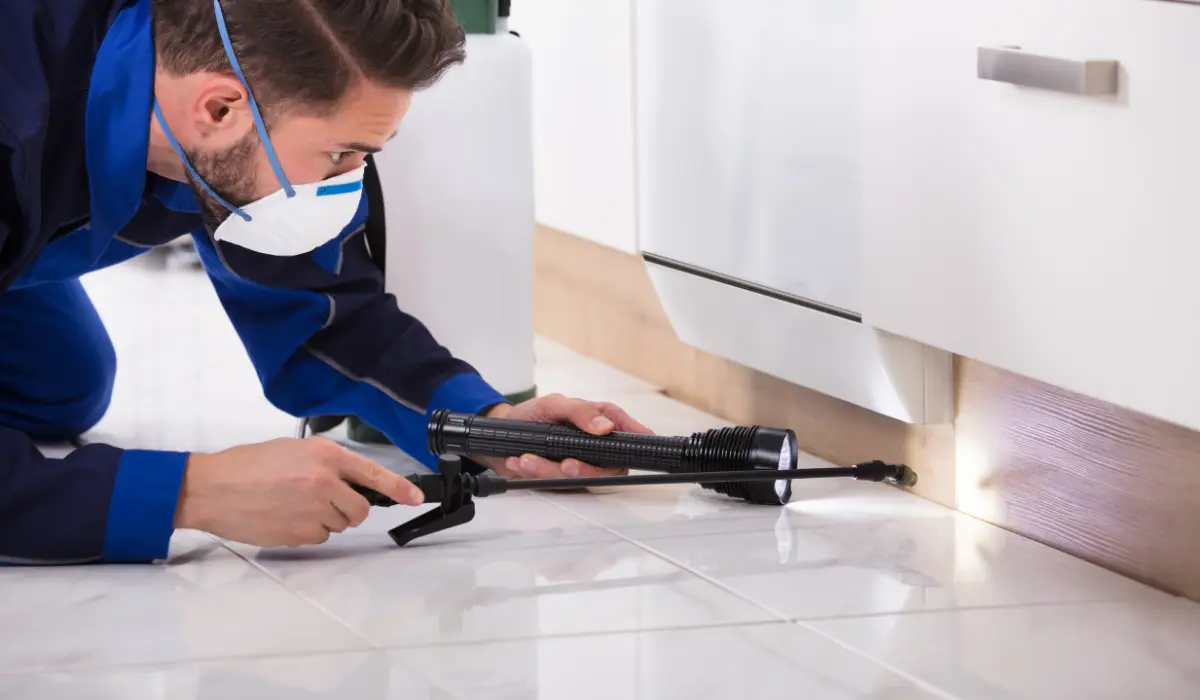Safe and Dependable Insect Control for Lasting Security
The value of risk-free and trustworthy pest control can not be overemphasized, specifically in a period where ecological problems are vital. Effective bug management needs a complex strategy that stabilizes eco-friendly stability with the requirement for efficient insect suppression. By discovering green remedies and incorporated parasite administration methods, property owners can achieve lasting defense versus invasive species while guarding helpful environments. The nuances of these methods may not be immediately clear, motivating a more detailed examination of the practices that can lead to lasting pest control end results. What steps can be required to make certain both safety and security and efficacy in parasite management?
Recognizing Pest Control Techniques
Parasite control includes a range of approaches aimed at managing and removing undesirable pests and rodents that can endanger both health and wellness and residential or commercial property. Comprehending these approaches is crucial for effective bug monitoring.
The key categories of pest control methods include mechanical, organic, and chemical approaches. Mechanical techniques entail physical obstacles and catches to prevent pest access and capture undesirable species. For circumstances, utilizing screens on windows or employing sticky traps can considerably reduce insect populations without introducing damaging compounds.

Chemical bug control is typically the most identified technique, utilizing chemicals to get rid of pests. These chemicals can be reliable however must be utilized with caution to prevent unfavorable results on non-target types and the environment.
Advantages of Eco-Friendly Solutions
Just how can eco-friendly services transform bug control techniques? The fostering of green insect control techniques uses countless advantages, significantly enhancing the effectiveness and security of parasite monitoring.

One more advantage is the favorable effect on neighborhood biodiversity. Green options are developed to target particular pests while maintaining helpful bugs and wildlife, advertising a well balanced community. This approach straightens with the growing consumer need for sustainable techniques, boosting the online reputation of pest control suppliers.
Integrated Bug Administration Methods
The implementation of eco-friendly remedies naturally leads to the fostering of Integrated Pest Administration (IPM) techniques, which better improve pest control effectiveness. IPM is a holistic technique that combines several methods to take care of pest populaces while minimizing environmental influence. This technique stresses the use of organic, cultural, mechanical, and chemical controls, making certain a lasting and balanced technique of parasite administration.
One basic aspect of IPM is the complete assessment of bug task and ecological conditions. By keeping an eye on pest populaces and identifying their life cycles, professionals can implement targeted interventions that interrupt the bug's habitat or lifecycle, minimizing dependence on chemical pesticides. Additionally, cultural methods such as plant turning and environment control can substantially lessen pest establishment and reproduction.
One more important part is the usage of biological control agents, such as useful bugs or bacteria, which can normally reduce bug populaces. When chemical applications are needed, IPM prioritizes making use of low-risk pesticides and applies them precisely, lessening exposure to non-target organisms and people.
Integrating IPM approaches not just boosts bug control performance however likewise promotes a much safer community, lining up with the growing demand for sustainable techniques in parasite monitoring.
Safe Practices for Home Owners
Comprehending the importance of safe practices in parasite control can encourage house owners to successfully handle pest concerns while safeguarding their wellness and the setting. Carrying out precautionary measures and safe approaches is critical in lessening exposure to harmful chemicals.
Home owners must first analyze their atmosphere for problems that attract bugs, such as standing clutter, food, and water waste. Routinely cleansing and securing entry factors can deter insects from attacking Source the home. Utilizing all-natural deterrents, such as important oils or diatomaceous planet, can provide efficient options to chemical pesticides.
When chemical therapies are required, property owners need to go with items that are especially labeled as risk-free for household usage. It is vital to comply with application standards meticulously to prevent too much exposure. In addition, using targeted treatments in areas where insects are recognized, rather than covering spraying, can considerably minimize chemical usage.
Lastly, preserving open communication with insect control experts is crucial. Home owners need to ask about the safety and security of items made use of and demand green alternatives whenever feasible. By taking on these secure methods, house owners can produce a healthier living environment while effectively managing pest issues.

Tips for Long-Term Security
Establishing a bug monitoring approach that stresses lasting security can significantly enhance the performance of the secure practices previously reviewed. To accomplish this, property owners should apply routine evaluations of their residential or commercial property, concentrating on hidden areas such as attic rooms, basements, and crawl spaces. Early discovery of insect task is vital in avoiding problems from taking hold.
Additionally, keeping a clean setting is important. This consists of appropriate food storage space, immediately cleaning spills, and regularly dealing with garbage. These methods reduce attractants that draw parasites into the home. In addition, sealing entrance factors, such as fractures around doors and windows, can properly block prospective parasite gain access to.
Landscaping must additionally be considered; keeping plants trimmed and preserving a range in between plant life and the home minimizes hiding places for bugs. Utilizing all-natural deterrents, such as important oils or diatomaceous planet, can better discourage invasions without turning to severe chemicals.
Lastly, collaborating with an expert insect control service for regular examinations can offer an additional layer of protection. These specialists can supply customized referrals and progressed therapies, making sure that your home stays secured versus bugs in the long-term.
Final Thought
Finally, risk-free and reputable pest control requires a diverse technique that emphasizes green approaches and incorporated bug monitoring. By carrying out all-natural deterrents, conducting routine inspections, and keeping correct sanitation, homeowner can significantly minimize insect populations while securing helpful insects and the atmosphere. Partnership with professional pest control services boosts the performance of these techniques, making sure customized solutions that offer enduring security and comfort versus future infestations.
Effective parasite administration needs a multifaceted method that stabilizes ecological stability with the demand for reliable parasite suppression. The fostering of environmentally friendly insect control approaches supplies many benefits, dramatically enhancing the performance and safety and security of pest management.The implementation of environmentally friendly solutions naturally leads to the fostering of Integrated Pest Monitoring (IPM) methods, which additionally improve parasite control efficiency. exterminator coquitlam. By checking bug populaces and recognizing their life cycles, practitioners can execute targeted interventions that disrupt the bug's habitat or lifecycle, minimizing dependence on chemical pesticides.In verdict, reliable and risk-free parasite control needs a complex strategy that stresses environmentally friendly approaches and integrated pest administration